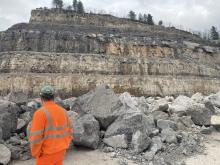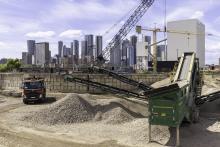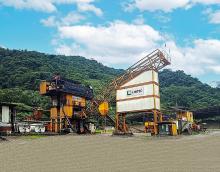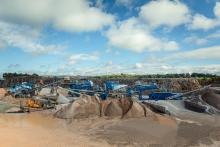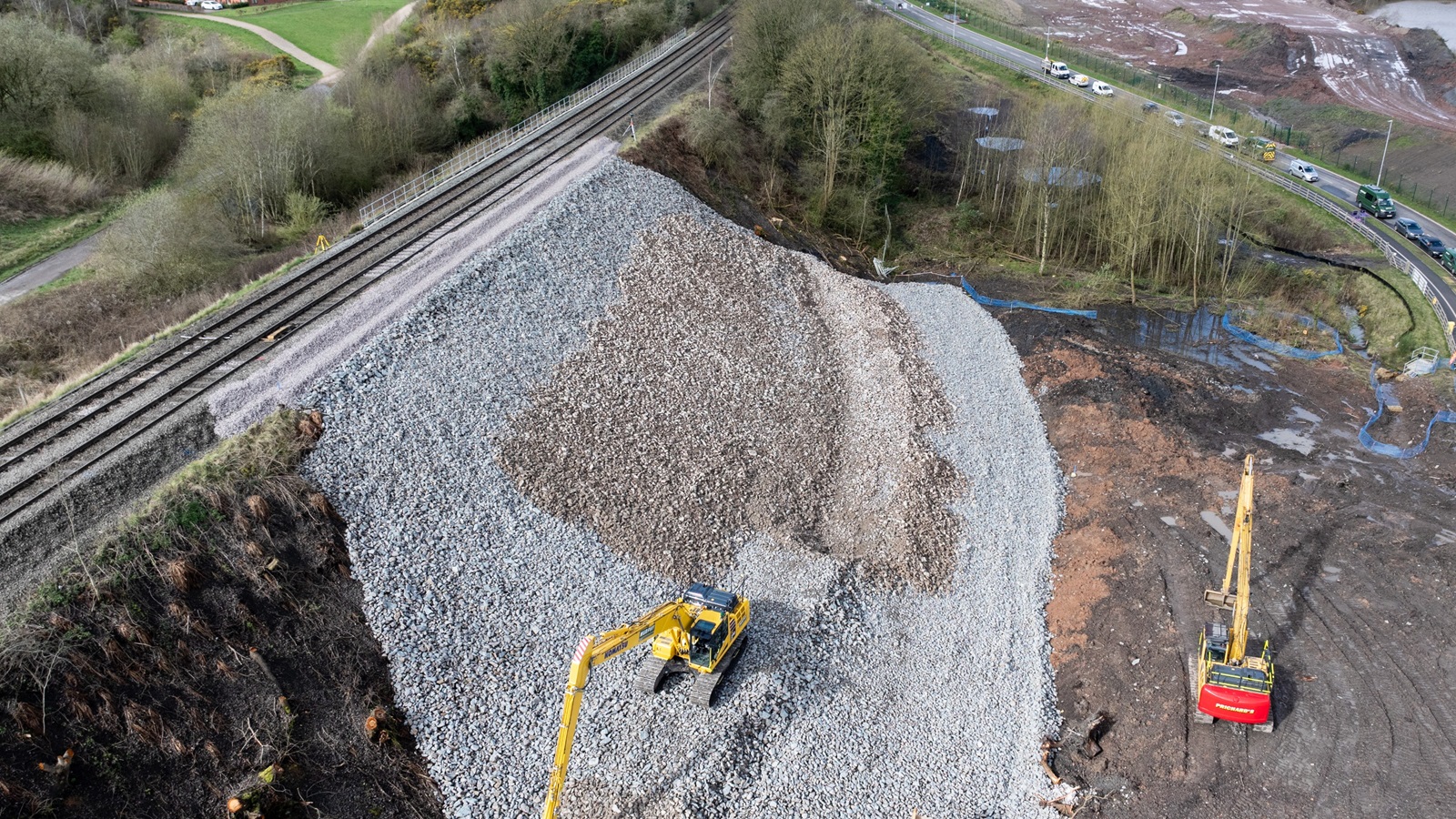
The call comes as the Met Office issued further heavy rain warnings this week, with 5.1 inches of rain falling across England within 24 hours, leading to yet more disruption to UK travel networks and other critical infrastructure.
Record levels of rainfall across the country have been causing widespread flooding, landslides and damage to essential transport links. One such incident was the Telford landslip of March this year, which closed the railway line between Shrewsbury and Wolverhampton for a period of three weeks, causing travel chaos in the local area.
Occurring after weeks of unrelenting rain, more than 5,000 tonnes of material gave way beneath a 50-metre section of the railway. Without urgent intervention, the landslip would have resulted in a prolonged closure and, consequently, significant economic and logistical impact.
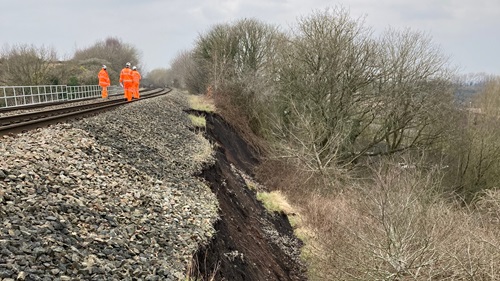
Responding to this urgent challenge, Aggregate Industries played a pivotal role in supporting Network Rail to restore the embankment. Its team rapidly mobilised to deliver the required quota of 4,000 Tonnes of native stone from its Bardon Hill quarry in Leicestershire. This included the Gabion stone and rip rap required to rebuild the earthwork and protect it from further damage.
Owing to the urgency required, numerous challenges arose. Site access proved problematic, with the embankment positioning along the railway track preventing access via traditional means. The volume of stone required then quickly increased to over 20,000 Tonnes as remedial works progressed and further sections of the 160-year-old embankment eroded. Weekend deliveries were then needed (when quarry operations were typically closed) to get the additional materials to Network Rail on-site without further delay.
Richard Allen, business manager for special aggregate products at Aggregate Industries, comments: "This was a challenging project logistically, but certainly a highly rewarding one. Working closely and tirelessly with Network Rail via our contractor partner, we were able to supply the 20,000 Tonnes needed to stabilise the area and get the railway back on track, preventing prolonged disruption to passengers."
The embankment, now supported by large stone steps, is fortified against future weather events, providing a stable, long-term solution for the railway.
Kaziwe Kaulule, managing director for the Aggregates & Overseas division at Aggregate Industries, adds: "As extreme weather increasingly threatens UK infrastructure, the importance of proactive solutions cannot be overstated. Tackling vulnerabilities now, while there is time to plan and implement thoughtful strategies, is far more effective than waiting for disaster to strike and resorting to reactive measures.
"The recent creation of the Flood Resilience Taskforce demonstrates the government's commitment to addressing these risks before they escalate into crises. By prioritising long-term resilience projects today, we can safeguard essential transport networks and protect communities from the escalating impacts of climate change in the future."
Visit Aggregate Industries for more information on its range of flood defence solutions and sustainable materials for infrastructure projects.

